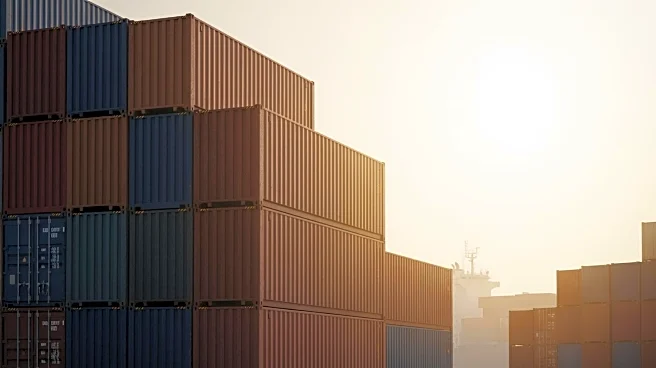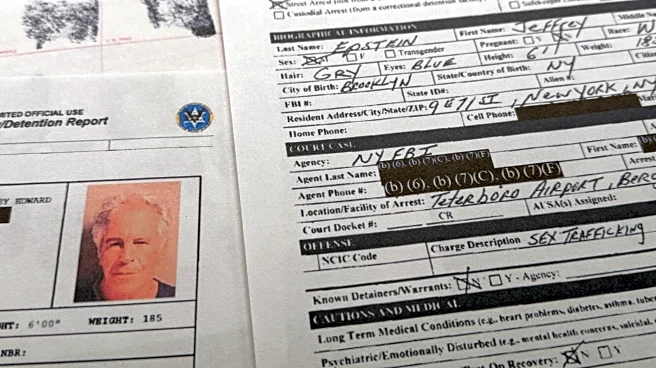What's Happening?
UPS is experiencing significant challenges with customs clearance for packages entering the United States, largely due to recent changes in U.S. import regulations. These changes, announced by President Trump, include the removal of the de minimis loophole,
which previously exempted shipments valued under $800 from tariffs. As a result, many consumers are facing unexpected delays and additional costs when ordering goods from abroad. UPS has acknowledged that while over 90% of packages clear customs on the first day, a notable number are held up due to these regulatory changes. Customers have reported receiving unexpected tariff bills, sometimes due to incorrect tariff assessments, such as being charged for Russian aluminum tariffs on unrelated goods.
Why It's Important?
The new tariff regulations are having a direct impact on U.S. consumers and businesses, leading to increased costs and logistical challenges. This situation highlights the broader economic implications of trade policies, as consumers are forced to navigate complex customs processes and potentially higher prices. Businesses that rely on international shipments are also affected, facing potential disruptions during peak shipping seasons like Black Friday. The changes could lead to a shift in consumer behavior, with some opting to reduce international purchases due to the added complexity and cost. This could affect international trade dynamics and the profitability of businesses that depend on cross-border sales.
What's Next?
As the holiday season approaches, the pressure on shipping companies like UPS is expected to increase, potentially exacerbating the current issues. Businesses and consumers may need to adjust their strategies, either by sourcing products domestically or by factoring in the additional costs and delays associated with international shipments. The ongoing situation may prompt further discussions on trade policies and their impact on the economy, possibly influencing future regulatory adjustments. Stakeholders, including businesses and consumer advocacy groups, may push for clearer guidelines and more efficient customs processes to mitigate the current challenges.
Beyond the Headlines
The tariff-related challenges faced by UPS and its customers underscore the complex interplay between trade policies and everyday consumer experiences. The situation raises questions about the transparency and efficiency of customs processes and the broader implications of protectionist trade measures. It also highlights the need for businesses to adapt to changing regulatory environments and the potential for increased consumer advocacy in response to trade-related disruptions.

















